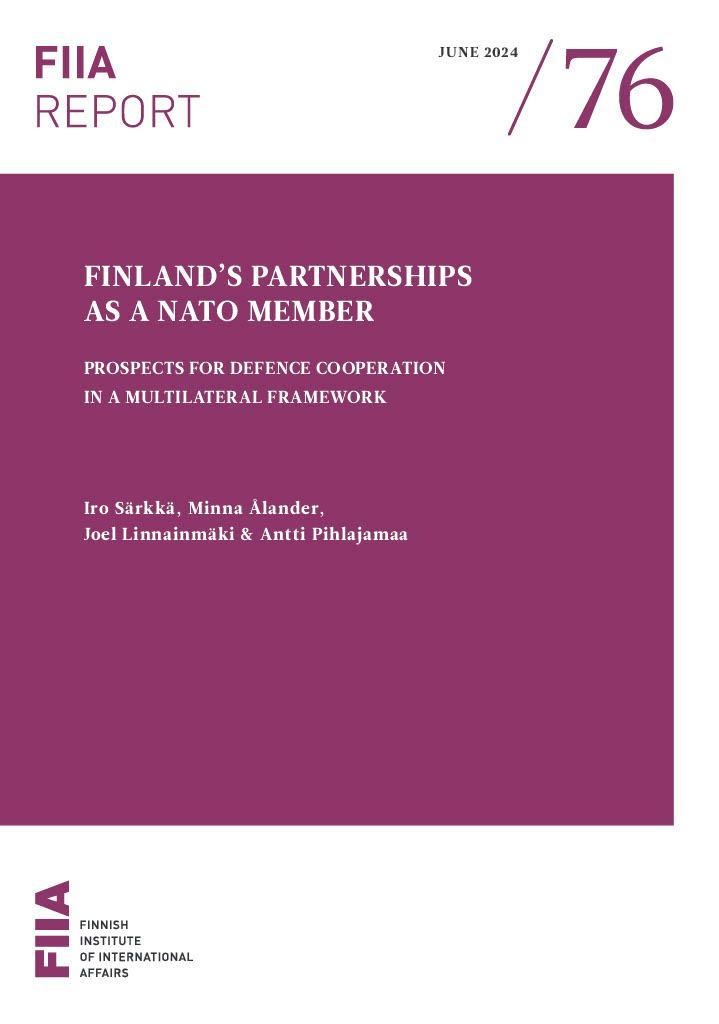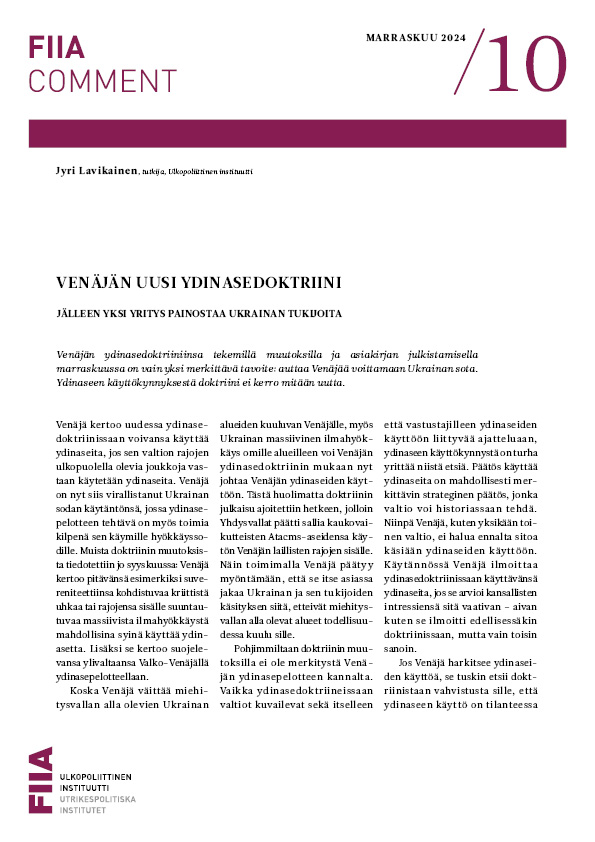Before joining NATO, Finland formed several bi-, tri- and minilateral defence cooperation partnerships with its neighbouring countries and major NATO member states. After NATO accession, the role of smaller defence cooperation formats has changed in Finland’s security and defence policy. As a NATO ally, why should Finland continue to promote these forms of defence cooperation, and what will their significance be in the future?
This report approaches defence cooperation from the perspective of individual NATO member states, aiming to enhance our understanding of the motives behind such cooperation in France, Germany, the United Kingdom, Estonia, Norway and Sweden. It studies defence cooperation through key strategic, military, economic and political factors, such as the perceived threat environment, military capabilities, strategic culture, and the role member states play in the multilateral security framework of NATO. The report compares these six countries with Finland and identifies factors impacting potential future cooperation.
The report finds that regional defence cooperation can yield positive outcomes for NATO. Bi-, tri- and minilateral defence cooperation can enhance intra-alliance policymaking and serve as a tool to build trust with key partners and allies, thus facilitating defence integration within NATO.










